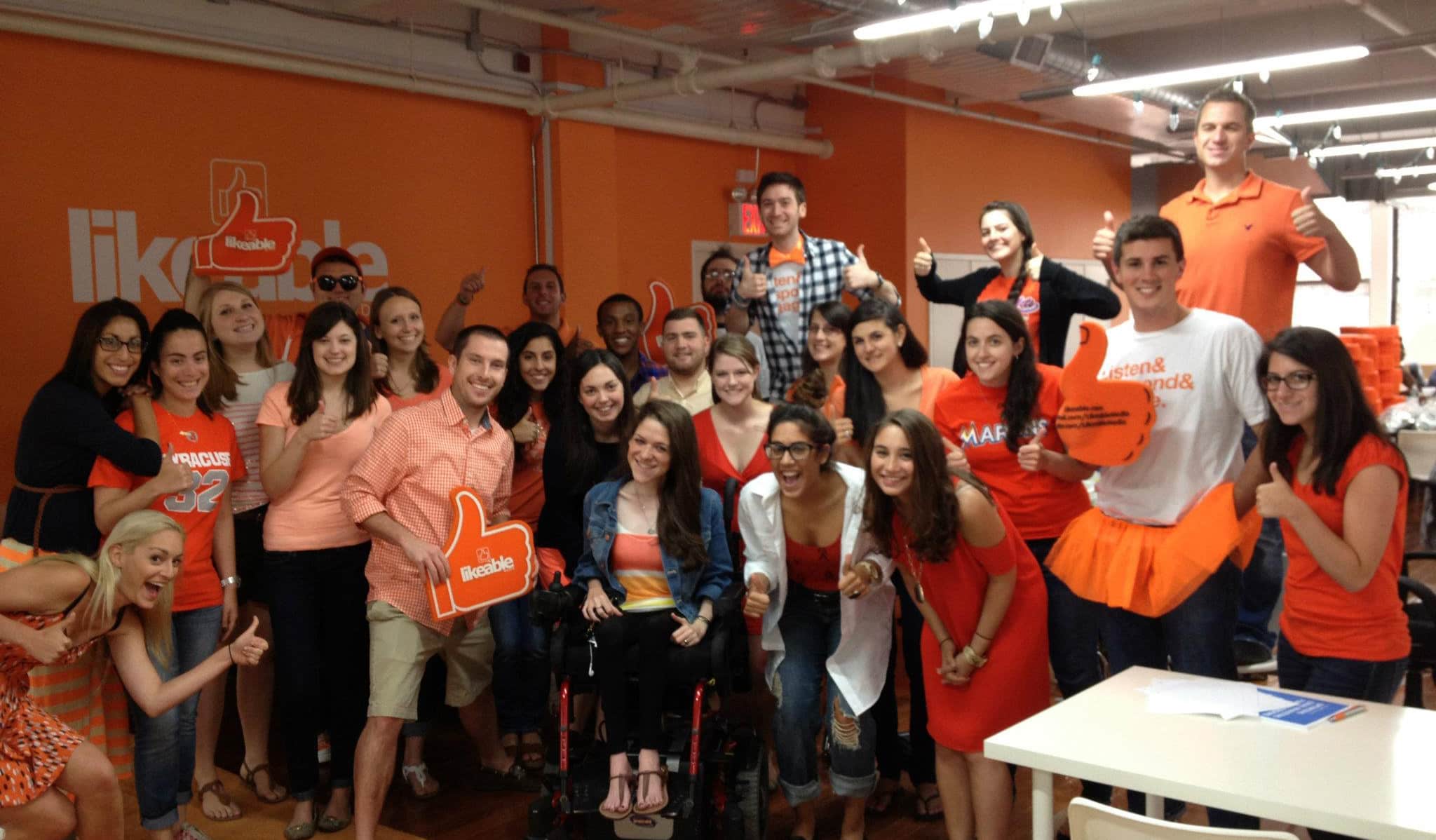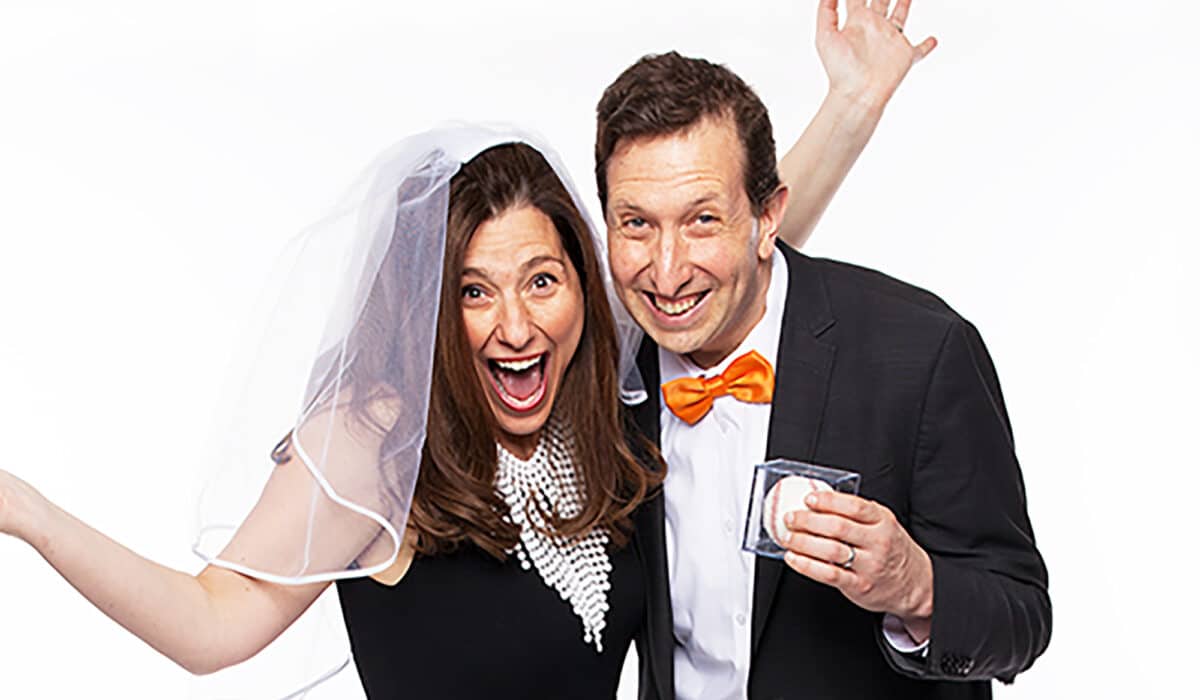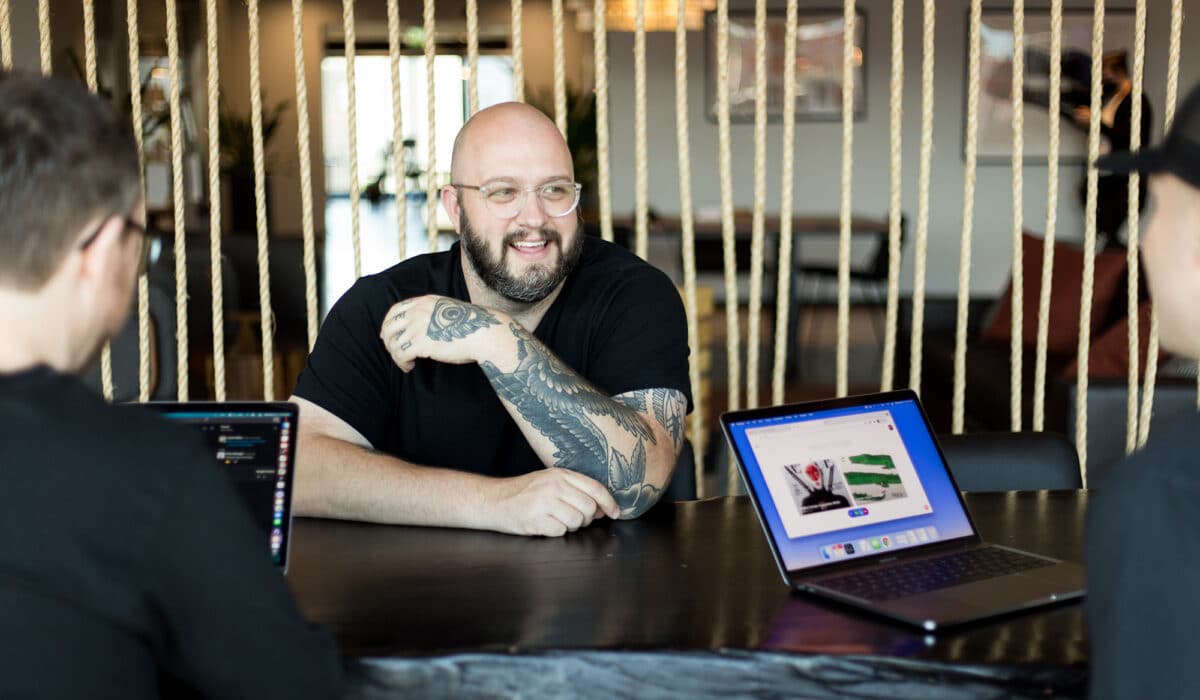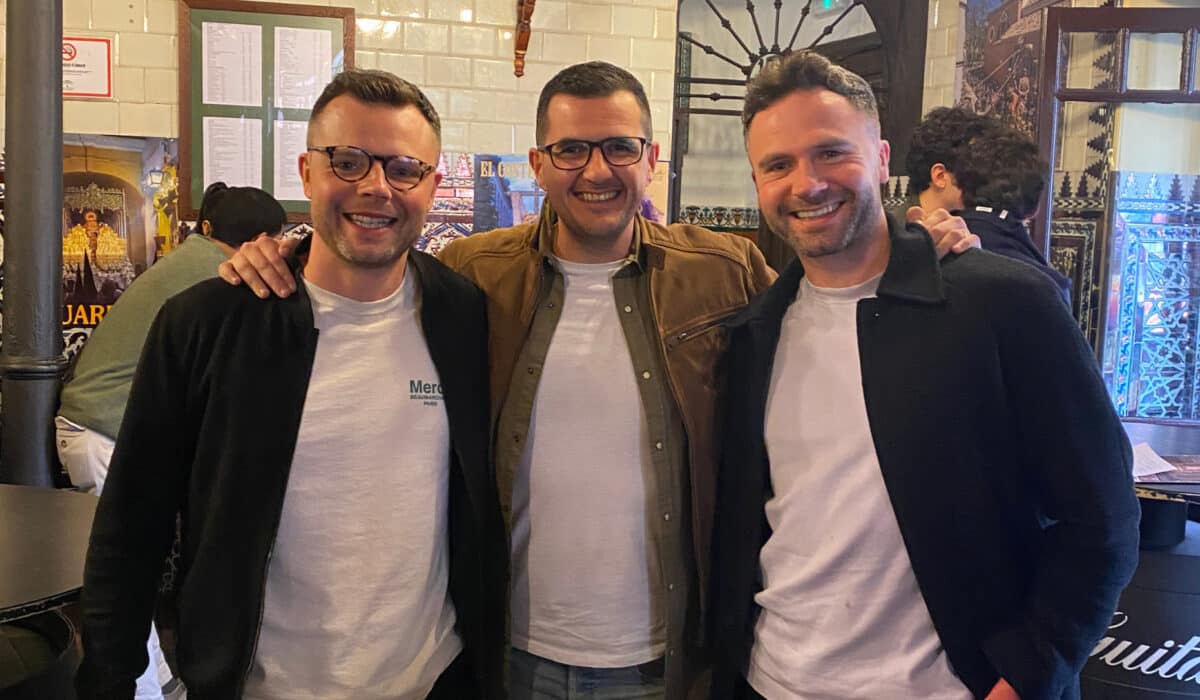A wedding represents love, commitment and the start of a new life together.
For Carrie and Dave Kerpen’s wedding in 2006, it also served as the unconventional founding day of their marketing and social media agency, Likeable Media.
Tapping into their marketing experience, the Kerpens pitched the Brooklyn Cyclones, a minor league baseball team, on purchasing its night of sponsorship. In exchange, the engaged couple could use the Cyclones’ 7,500-seat ballpark as a venue for the nuptials.
They then recruited sponsors for their wedding, generating $100,000 in sponsorships and $25,000 in donations for the MS Society, said Carrie Kerpen, formerly Carrie Fisher.
“Between innings, instead of Pepsi tossing T-shirts, 1-800-FLOWERS would toss wedding bouquets, and everything would be wedding-themed,” Carrie Kerpen said in an interview with Sakas and Company in 2014. “We would be able to get married on the field in front of everyone we’ve ever wanted to be there and have the whole thing paid for, and we could also raise money for charity.”
The event generated loads of press, and inspired the couple to launch Likeable as an agency that drives word-of-mouth exposure.
“Obviously we couldn’t get married again so we decided to start a company instead,” Carrie Kerpen said in the Sakas and Company interview. “The company was based on fulfilling a need, which is that companies need word of mouth. It’s definitely the most effective form of marketing, but it’s a very organic form of marketing, so you have to give people reasons to talk about your brand positively and accelerate that word of mouth.”
How Likeable adapted to social media changes
In the following years, the Kerpenses grew Likeable by consulting with and creating content for small and large companies.
They focused on social media — which at the time was a new medium for businesses — as a conduit to conversations about brands. Because social media was novel, the New York City company had to readily adjust to changes.
They initially used MySpace, a now-defunct social platform, then Facebook, and eventually Facebook’s paid ads system. Facebook’s transition to ads helped Likeable plan for Instagram’s inevitable switch to paid ads, too.
“You essentially have to be a shape-shifter in social media,” Carrie Kerpen told Sakas and Company. “You have to be able to understand what’s coming next — and not just what’s coming next but three steps ahead, with the ability to plan for that.”
That ability to see and adapt to social media trends helped the company grow. As they added clients, the co-founders prioritized operating a profitable business, one that didn’t overly focus on adding as many clients as possible. They adopted the mantra of “hiring slow, firing fast” and not overextending themselves.
They also leaned into long-term contracts that brought in recurring revenue, which made their revenue more predictable — and likely made the agency more attractive to a buyer, too.

Likeable Media team
Growing and selling Likeable Media
By 2021, Likeable had about 40 employees and about 30 larger clients on retainer, Kerpen told They Got Acquired. It had helped more than 1,000 brands enhance their social media marketing.
That year, the Kerpenses were ready for a change and wanted to cash out on their hard work. They sought out the help of a broker, Barney, which specializes in selling digital agencies.
“I felt the agency could do more with a larger partner, [and I] was ready to take money off the table,” Carrie Kerpen said. “[I] was personally ready for a change but not totally done, so I could still give an acquirer my passion and energy in a way that would help the business fly.”
In April of 2021, the software firm 10Pearls made an offer. While Carrie Kerpen told us her contract prevented her from sharing details, she previously told the Built to Sell podcast it was a low-8-figure sale that represented an 8x multiple of EBITDA, or earnings before interest, taxes, depreciation, and amortization.
Likeable offered 10Pearls the ability to offer new services that help its clients transform their digital presence to better connect with customers.
“[The sale experience was] emotional, but also a joy to look back at what we built,” Carrie Kerpen said. “It was a totally new experience for me, and I learned a lot.”
Carrie Kerpen stayed on with the company through the sale, then left in 2024 to run The Whisper Group, which helps female founders scale and exit. She also launched a podcast, The Exit Whisperer.
Dave Kerpen, who moved away from Likeable’s day-to-day operations a few years before the acquisition, serves as the co-CEO of Apprentice, an entrepreneur resource organization.



